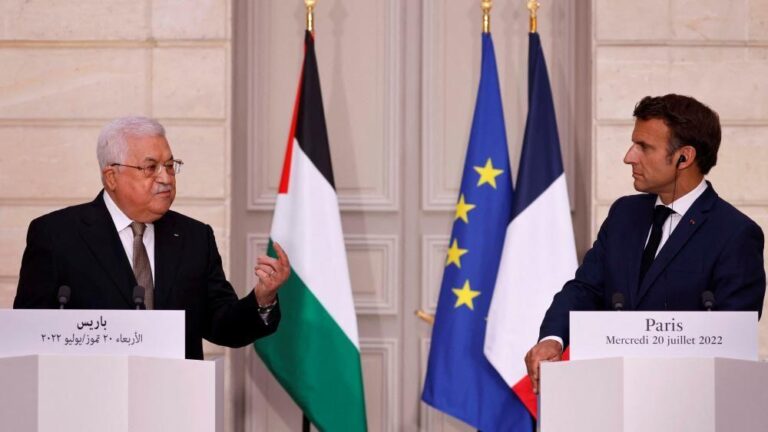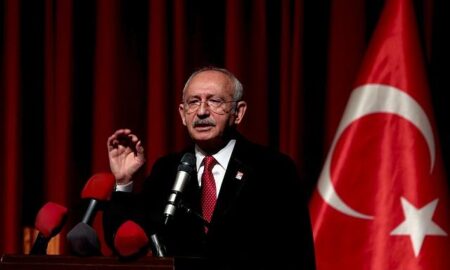France is set to officially recognize the state of Palestine, French President Emmanuel Macron announced, marking a significant shift in the countryŌĆÖs Middle East policy. The move comes amid renewed efforts to advance peace negotiations between Israel and Palestine and reflects growing international pressure for a two-state solution. MacronŌĆÖs statement signals FranceŌĆÖs commitment to supporting Palestinian statehood while continuing to advocate for dialogue and stability in the region.
FranceŌĆÖs Path to Recognizing Palestine Signals Major Shift in Middle East Policy
In a move signaling a seismic shift in its Middle East policy, France is set to formally recognize the state of Palestine, a decision announced by President Emmanuel Macron. This landmark step departs from the traditionally cautious European stance and underscores FranceŌĆÖs commitment to reinvigorating peace efforts between Israel and Palestine through diplomatic means. Macron emphasized that recognition serves as a necessary catalyst to advance negotiations and reaffirm FranceŌĆÖs role as a pivotal mediator in the regionŌĆÖs complex geopolitics.
The shift comes amid growing international pressure and reflects a recalibration of French foreign policy priorities, leveraging influence to encourage renewed dialogue. Key elements influencing this decision include:
- Enhanced diplomatic engagement: Strengthening FranceŌĆÖs position as a neutral arbiter capable of bridging divides.
- Support for two-state solution: Reinforcing commitment to coexistence and mutual recognition as foundations for long-term stability.
- Responding to regional dynamics: Addressing shifts in alliances and emerging challenges across the Middle East.
| Factor | Impact on Policy |
|---|---|
| European Union Pressure | Increased calls for unified stance |
| US-Middle East Relations | Creating diplomatic openings |
| Middle East Stability | Need for conflict resolution |
Implications of MacronŌĆÖs Announcement for Franco-Israeli Relations and Regional Stability
President Emmanuel MacronŌĆÖs declaration signals a significant recalibration in FranceŌĆÖs diplomatic stance, with potential reverberations throughout the Middle East. By recognizing the state of Palestine, France asserts its commitment to a two-state solution, acknowledging Palestinian sovereignty while urging renewed peace negotiations. This move may embolden pro-Palestinian advocacy domestically and internationally, fostering increased dialogue around Palestinian rights. However, it equally risks straining relations with Israel, which could interpret the recognition as a challenge to its territorial claims and security concerns. French-Israeli diplomatic channels might encounter heightened tensions, as Israel could respond with measures that affect bilateral cooperation in intelligence, defense, and economic partnerships.
The broader regional stability is poised to face new dynamics following this announcement. FranceŌĆÖs position could inspire similar recognitions by other European nations, potentially shifting the geopolitical equilibrium. The declaration may galvanize Palestinian leadership while prompting cautious recalibration by neighboring states invested in the delicate balance of power. Key implications include:
- Diplomatic Realignments: Increased alignment with Palestinian stakeholders may reshape FranceŌĆÖs alliances and influence in the Middle East.
- Security Concerns: Potential for escalated tensions along Israeli borders and increased volatility in zones of conflict.
- Economic Impacts: Altered trade and aid dynamics with Israel and Palestine, affecting regional markets and development projects.
| Factor | Potential Impact | Timeframe |
|---|---|---|
| French-Israeli Relations | Diplomatic strain and cautious dialogue | Short to Medium-term |
| European Policy Trends | Shift toward broader Palestine recognition | Medium to Long-term |
| Regional Security | Possible escalation in conflict zones | Immediate to Short-term |
Analysis of International Reactions and Potential Diplomatic Repercussions
Global responses to FranceŌĆÖs announcement have been swift and varied, illustrating the complex diplomatic landscape surrounding the Israeli-Palestinian conflict. European allies have largely expressed cautious support, emphasizing the potential for renewed peace negotiations while urging both parties to maintain calm. Conversely, several Middle Eastern nations have welcomed the move as a historic step toward Palestinian sovereignty, praising FranceŌĆÖs leadership in advocating for Palestinian statehood on the international stage. However, Israel has condemned the recognition, warning it could hinder bilateral peace talks and destabilize regional alliances.
The decision carries several potential diplomatic repercussions that could reshape future international relations. Key dimensions include:
- Diplomatic Realignments: Nations previously hesitant may recalibrate their policies on Palestinian recognition, potentially influencing voting patterns in global institutions such as the UN.
- Security Concerns: Heightened tensions risk escalated clashes, complicating FranceŌĆÖs role as a mediator and affecting broader European security interests.
- Economic Impacts: Trade relations could be affected, particularly with countries supporting either side, necessitating careful navigation of sanctions and aid packages.
| Country/Region | Likely Reaction | Potential Impact |
|---|---|---|
| European Union | Measured Support | Boost to diplomatic efforts |
| Israel | Strong Opposition | Reduced bilateral cooperation |
| Arab League | Positive Reception | Increased regional solidarity |
| United States | Reserved Response | Pressure for balanced approach |
Strategic Recommendations for France to Balance Peace Efforts and Geopolitical Interests
To navigate the complex landscape of Middle Eastern diplomacy while safeguarding its strategic interests, France must adopt a multifaceted approach. It is crucial for Paris to maintain open channels of communication with both Israeli and Palestinian leaders, promoting dialogue without appearing to take sides. Balancing public recognition of Palestine with strong commitments to regional security can help France position itself as a credible mediator. Such a strategy would enhance France’s stature in international forums and ensure its voice remains influential in future peace negotiations.
A careful calibration of foreign policy priorities can be outlined through key actions:
- Strengthen EU partnerships: Collaborate closely with European allies to present a unified diplomatic front.
- Enhance humanitarian aid: Increase support for development projects in Palestinian territories to underscore commitment to human rights.
- Support security cooperation: Work with Israeli counterparts on counter-terrorism efforts to ensure regional stability.
- Promote multilateral dialogue: Facilitate international conferences that encourage inclusive peace talks.
| Policy Area | Action | Expected Outcome |
|---|---|---|
| Diplomacy | Engage both sides with balanced rhetoric | Maintained mediation credibility |
| Security | Collaborate on intelligence sharing | Reduced violence risk |
| Humanitarian | Increase funding for health and education | Improved living conditions |
| International Cooperation | Host multilateral peace summits | Broadened diplomatic engagement |
In Conclusion
As France moves toward officially recognizing the state of Palestine, President Emmanuel Macron’s announcement marks a significant shift in the countryŌĆÖs longstanding foreign policy stance. This development is expected to resonate across the international community, potentially influencing diplomatic relations and peace efforts in the Middle East. ABC News will continue to monitor and report on the unfolding reactions and implications of this historic decision.




